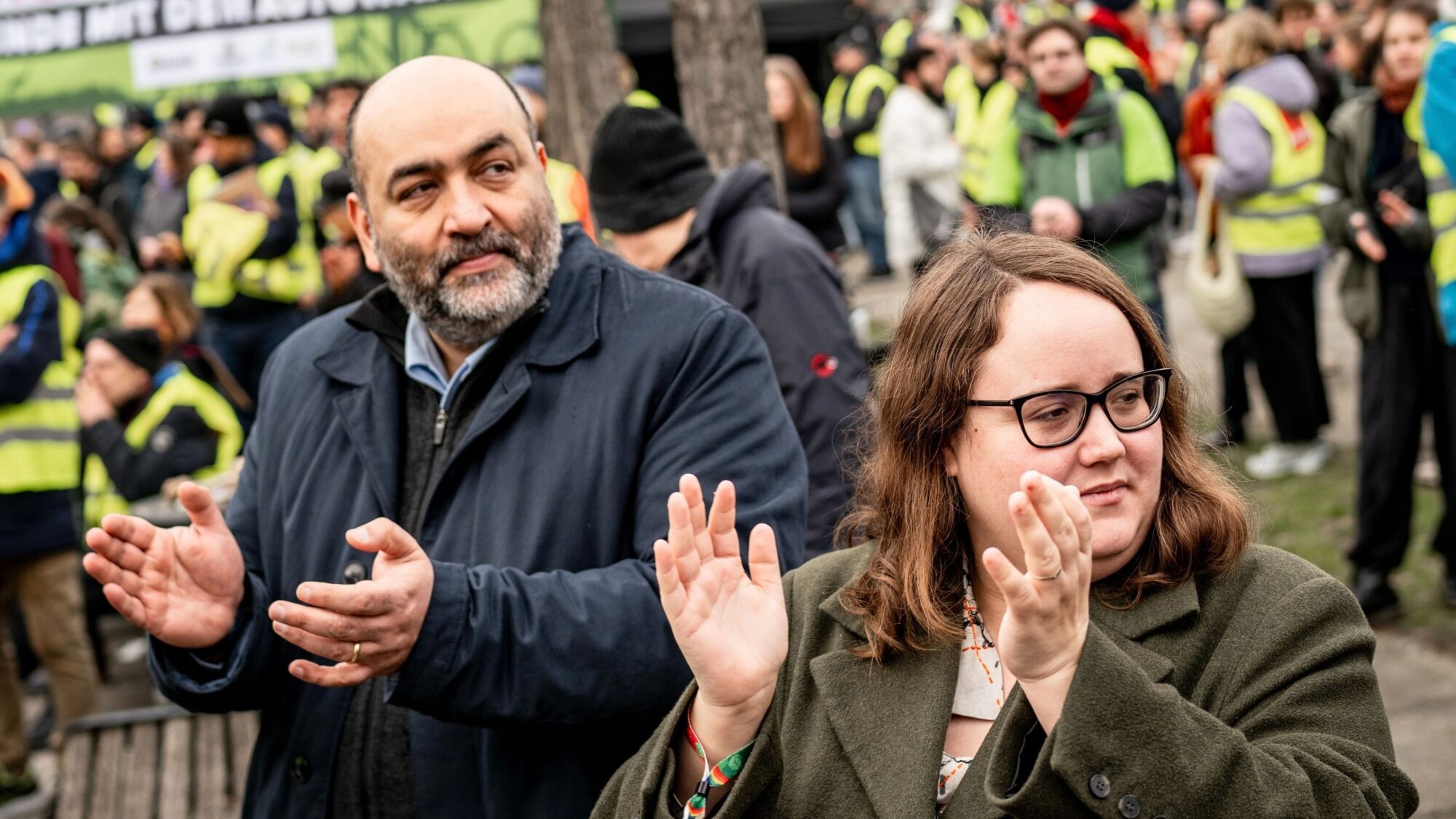
Greens leaders Omid Nouripour and Ricarda Lang
Photo:@Die_Gruenen on X, 1 March 2024
The co-leaders of Germany’s Greens party, Omid Nouripour and Ricarda Lang, have resigned following a series of disastrous results at the regional elections in three eastern states.
The Greens barely managed to pass the 5% threshold needed to enter the Saxony parliament and failed to win any seats in Thuringia (3.2%) and Brandenburg (4.1%). According to the latest nationwide opinion polls, the party’s support has dropped to single digits (9.5%) for the first time in years, with only a year left until the next federal elections.
Voters have punished all three members of the federal ‘traffic light’ coalition—the Social Democrats, the Greens, and the liberal FDP—to varying degrees. Citizens have seemingly had enough of the government’s incompetent handling of the migration and cost-of-living crises, with the green energy transition forced through by the Greens putting a huge burden on the everyday lives of taxpayers. The Greens have also become the most hawkish party in Germany, staunchly supporting Ukraine, and ignoring the desire of mostly Eastern German voters who voted overwhelmingly for pro-negotiated peace parties like the Alternative für Deutschland (AfD) and Bündnis Sahra Wagenknecht.
Evidently not learning from their mistakes, and continuing to insult voters, outgoing Green co-leader Ricarda Lang said at a news conference on Wednesday, September 25th, that next year’s election will be a choice between “a country focussed on achieving prosperity by sticking to climate neutrality or a country run by people who want to back away from all that.”
Warum ich mein Amt als Parteivorsitzende zum Parteitag niederlege: pic.twitter.com/BzAr2Z3rRB
— Ricarda Lang (@Ricarda_Lang) September 25, 2024
Announcing his resignation, Omid Nouripour was more humble, declaring that “the result in Brandenburg on Sunday is a sign our party is in its deepest crisis for a decade,” and that “it is time to lay our beloved party’s fate in others’ hands.”
The leaders of the Greens’ youth organisation, Grüne Jugend, also announced their resignation, saying they would leave the party altogether and establish a new left-wing youth association. The young leaders cited disagreements with their parent party as their reason for leaving, after disagreeing with the government’s decision to increase the budget of the army and the tightening of Germany’s asylum laws.
Robert Habeck, Germany’s economy minister, and former leader of the party, said he shared responsibility for the poor election results and called for an open debate on the Greens’ future at their party congress in mid-November, when a new leadership will be elected.
A few days ago, Christian Lindner, leader of the FDP party, which fared even worse than the Greens at the regional elections, issued an ultimatum to his coalition partners in the German federal government: change course on migration and the economy, or his party will leave, and the government will collapse. The party is conservative on issues such as migration, the economy, and the budget, and has criticised its coalition partners for dismantling nuclear power plants too quickly. Its lack of authority within the coalition may have dismayed its voter base.
All signs are pointing to a government crisis, with Thorsten Frei, parliamentary group leader of the centre-right CDU/CSU alliance stating that “the coalition is cracking up live on camera.” He added: “Bold decisions are needed. People expect answers on the escalating economic crisis. And they want a U-turn in migration policy.”
Chancellor Olaf Scholz is apparently not too worried, saying that the turbulence in the Green Party will have no impact on the coalition. According to government spokesman Steffen Hebestreit, Scholz regrets the decision by Lang and Nouripour to resign, but said that it is a part of the democratic process that party leaderships sometimes change.
